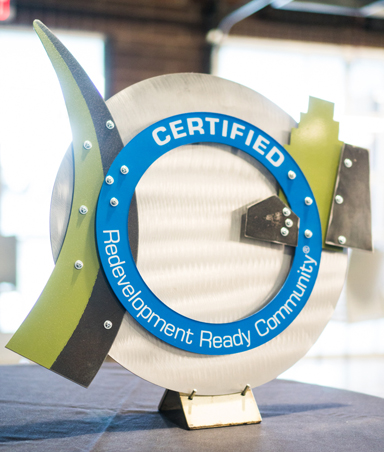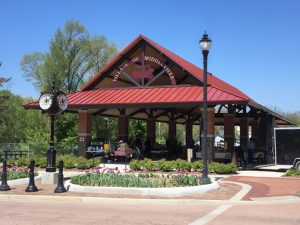
By KAREN WIEBER
Business owners are an important constituent and member of every Michigan community, as any local government official will likely tell you. A common thread among all business owners is the need to gain local approvals before renovating or opening a building or business. In some communities the process to do so is clear – the forms are available online, multiple payment options for fees are provided, a point person can answer any questions, and applications are reviewed in a timely manner.
Communities can demonstrate their “development-readiness” by participating in the Redevelopment Ready Communities (RRC) program. RRC is an economic development tool at the Michigan Economic Development Corporation designed to help local governments create a more transparent and predictable approval process. RRC staff takes a deep dive into a local government’s practices and provides recommendations to remove barriers to small business development – things like streamlining approvals, reducing delays by documenting internal processes, and consistency in regulations. Clear and transparent permit processes are good for everyone – businesses, real estate developers and even homeowners looking to complete a small addition or install a fence.
RRC best practices touch on many aspects of local government that are important to business owners, including: does the community have an adopted plan and vision? Are land use regulations clear? Are permit applications available online? How do I apply to serve on a board or commission? What property sites are the community’s highest priority, and are they marketed? What economic development goals has the community set for itself? And finally, what is the brand and marketing strategy for the community?

The RRC-certified community of Middleville in Barry County has made strategic public investments in their downtown, like this community pavilion. Photos courtesy MEDC.
Local governments from all over the state are participating in RRC – from the Upper Peninsula to southwest Michigan, and including the city of Detroit. To date, nearly 20 communities have accomplished the Best Practice criteria and become “RRC certified.” RRC certification is a signal that a community has their processes in order and is open for business.
Michael Connors is the village manager for Almont, located in Lapeer County. Almont has been participating in RRC since mid-2017.
“The No. 1 complaint among [real estate] developers is dealing with the delays of the local permitting and site plan review process,” Connors said. “For a developer, time is money. If you streamline the process and offer predictability and excellent customer service – this speaks volumes to a developer or resident looking for assistance.”
Scott Adkins is the city manager for Roseville, located in Macomb County. Roseville earned RRC certification in 2014, and has continued to push for additional process improvements and redevelopment ever since.
“Since becoming an RRC community, the time it takes to get approval for a big development project in Roseville like the Macomb Mall expansion has fallen from six months to 90 days or less. It’s been a huge improvement,” Adkins said. Roseville saw $40 million in commercial development last year that he attributes directly to the city’s RRC certification.
Business owners and retailers can help the RRC process locally by getting involved; participating in community master plan input sessions, volunteering to serve on a board or commission, or simply by sharing positive marketing messages about the community.
Karen Weiber is a Senior RRC Planner in community development at the Michigan Economic Development Corporation.
